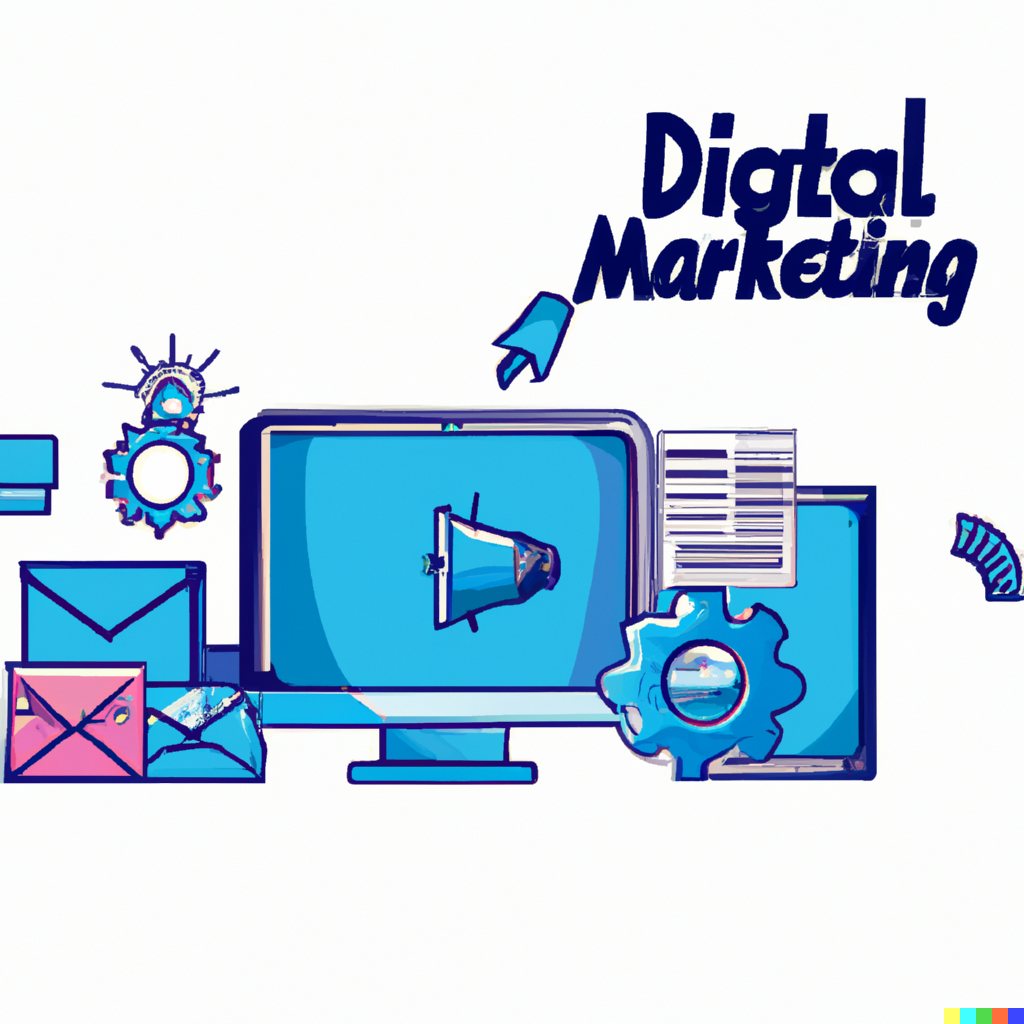Digital marketing refers to the use of digital channels, platforms, and technologies to promote products, services, or brands to a target audience. It encompasses a wide range of online activities aimed at connecting with potential customers where they spend their time on the internet. Digital marketing leverages various digital tools and techniques to reach, engage, and convert leads into customers. Here are some key components and strategies within digital marketing:

- Search Engine Optimization (SEO): SEO involves optimizing online content to improve its visibility in search engine results pages (SERPs). This helps websites rank higher in search engine listings, increasing organic (non-paid) traffic.
- Content Marketing: Content marketing involves creating and sharing valuable, relevant content to attract and engage a target audience. This can include blog posts, articles, videos, infographics, and more.
- Social Media Marketing: Social media platforms like Facebook, Instagram, Twitter, and LinkedIn are used to connect with audiences, build brand awareness, and drive website traffic. Social media marketing involves both organic (unpaid) and paid advertising.
- Email Marketing: Email marketing is the use of email to communicate with potential and existing customers. It can include newsletters, promotional offers, and personalized content.
- Pay-Per-Click (PPC) Advertising: PPC advertising involves creating and running online ads on platforms like Google Ads and Bing Ads. Advertisers pay a fee each time their ad is clicked. This is a way to buy visits to a website rather than earning them organically.
- Affiliate Marketing: In affiliate marketing, businesses reward partners (affiliates) for driving traffic or sales to their websites. Affiliates promote products or services through unique tracking links.
- Influencer Marketing: Brands collaborate with influencers who have a substantial and engaged following on social media or other online platforms. Influencers promote products or services to their audience.
- Content Management and Website Optimization: The management of a website, including ensuring it’s user-friendly, mobile-responsive, and optimized for search engines, is a fundamental aspect of digital marketing.
- Analytics and Data Analysis: Analyzing data is crucial to assess the effectiveness of digital marketing efforts. Tools like Google Analytics provide insights into website traffic, user behavior, and conversion rates.
- Mobile Marketing: With the widespread use of smartphones, mobile marketing targets users on their mobile devices through mobile apps, responsive websites, and SMS marketing.
- Video Marketing: The creation and promotion of video content through platforms like YouTube, Vimeo, and social media have become a significant part of digital marketing.
- Chatbots and AI: Businesses use chatbots and artificial intelligence to provide instant customer support, answer questions, and guide users through websites.
Digital marketing offers numerous benefits, including the ability to reach a global audience, cost-effectiveness, real-time communication, and the ability to target specific demographics. It is a dynamic field that constantly evolves as new technologies and platforms emerge, making it essential for digital marketers to stay current with industry trends and best practices.
